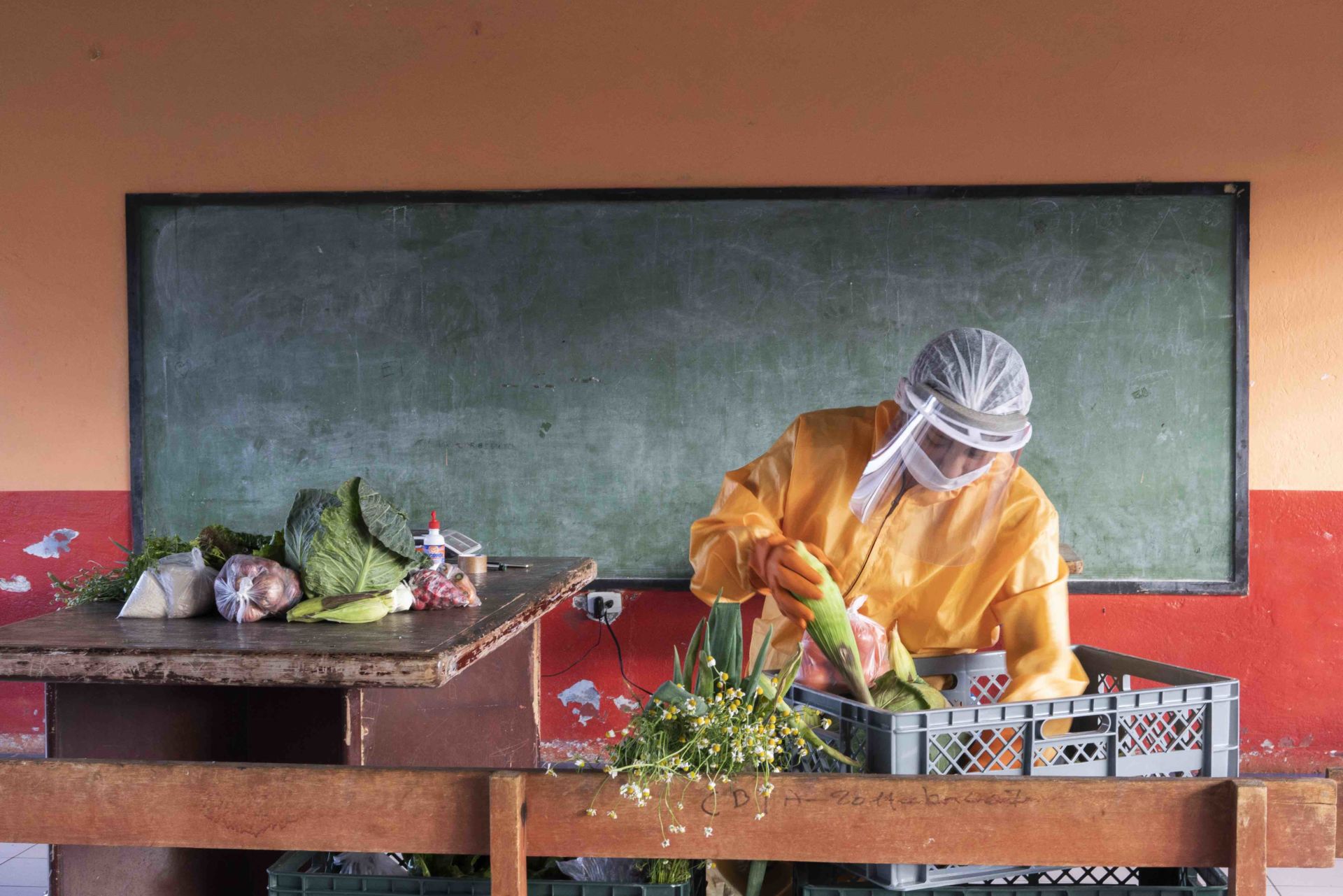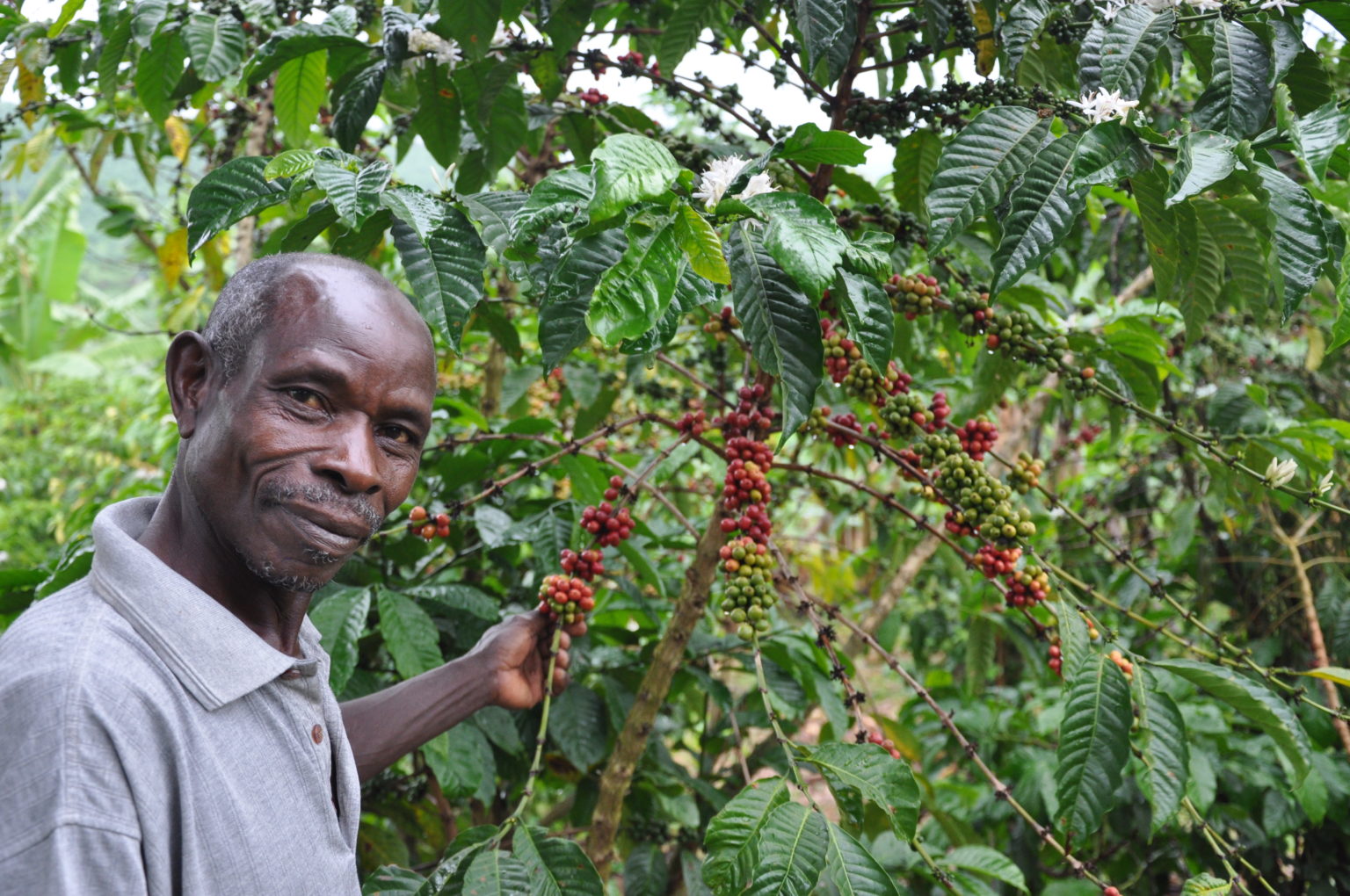This article is part of an editorial collaboration with Heifer International. It was first published on the Heifer International blog.
There was no way for small-scale farmers in Ecuador to anticipate the COVID-19 pandemic more than a year ago when they started diversifying the products they grew and mapping efficient paths to get them to hungry urban markets. But when the coronavirus hit the South American nation hard, these farmers found themselves well-prepared to keep homebound customers fed. Working with Heifer International, they created a whole new delivery system on the fly, putting out catalogs of their offerings, adopting stringent sanitation practices on farms and in production facilities, and partnering with an app developer so urban customers could use smartphones to easily order fresh produce directly from rural farms.
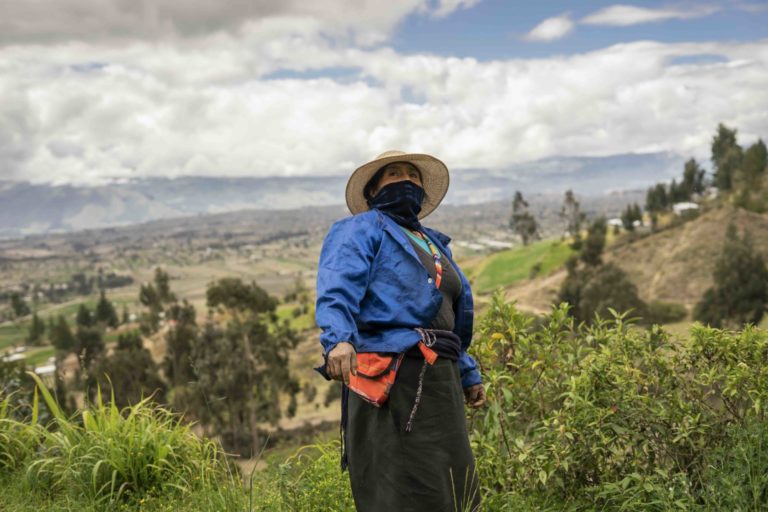
“We are quite busy, working around the clock, preparing baskets filled with produce that will be delivered to people’s homes, and it’s a hard task. We help farmers sell their produce and we help supply the city with produce,” said Nelson Pamar, the president of Pamar Chacrin, one of the farmers groups working with Heifer International as part of the Future of Food.
The Future of Food program kicked off in 2019 to boost the production of nutritious, sustainably grown food and get it to eager urban customers. The ultimate goal is for thousands of small-scale farming families in Ecuador to close the living income gap. In Ecuador the living income, or the amount of money each person in a household needs per day to live a dignified life, is $5.26 in the highlands and $5.36 on the coast. But many farmers in Ecuador make less than $4.00 daily, meaning they often have to sacrifice nutritious food, clean water, shelter, health care, education or other essentials.
Of course, the novel coronavirus pandemic changed the trajectory of the program, which included connecting farmers to open-air marketplaces and fairs to sell their products.
“When the health emergency was announced, we no longer had anywhere to sell our food, and we were worried, but we didn’t just cross our arms — immediately, we organized to deliver baskets containing grains and beans, vegetables, quinoa, and bok choy at our customers’ homes,” Pamar said.
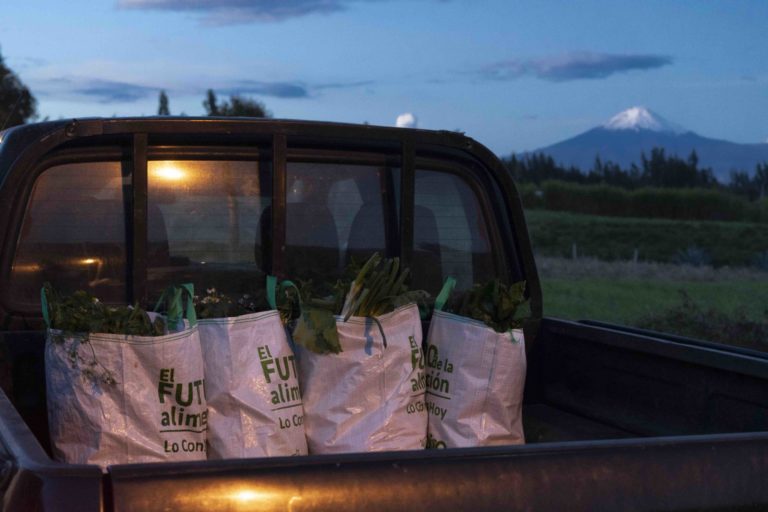
As reported in The New York Times, Ecuador faced one of the world’s worst COVID-19 outbreaks in the first several months of 2020. In response, the government mandated a national lockdown. When public urban transportation systems came to a standstill, farmers took to delivering baskets of vegetables, grains, and beans by bicycle, if not by well-sanitized rented vehicles. In doing so, the farmers protected their own livelihoods in a time of economic crisis, when larger-scale food supply chains were broken.
In Quito, the nation’s capital, the mayor approached Heifer Ecuador, recognizing an opportunity to bolster public health and safety while supporting both rural small-scale farmers and poor urban neighborhoods disproportionally affected by the pandemic. “He said, we know you work with producers, we need your help to support vulnerable populations. And we need to keep people at home,” said Rosa Rodriguez, director of Heifer Ecuador. Rodriguez’s team and the groups of farmers they work with quickly put their heads together to come up with a system that is affordable for nearly every family and safe for everyone.
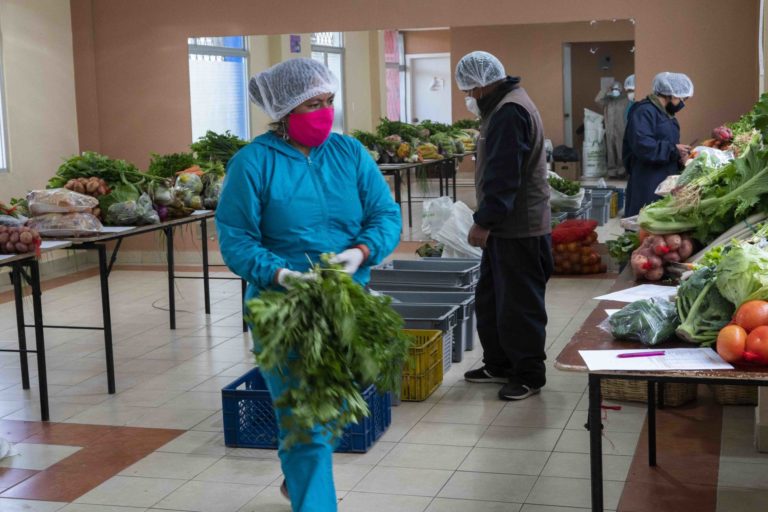
The process starts in the rural communities outside of Quito every Wednesday, when farmers harvest fresh products from their farms. Early Thursday morning, the products are delivered to one of eight collection centers, where they are checked for quality and packed for shipping to families in the capital. The food is transported into the city in vehicles that are regularly cleaned and sprayed to avoid contamination, then delivered to families across the city using a network of motorbikes and bicycles, many of which Heifer provided.
Customers can choose from one of four baskets, delivered weekly, that comprises 20 different products, from fruits and vegetables to cereals to honey. At $17 each, the baskets are set at an intentionally low price point to reach more consumers, especially those surviving on low incomes. In Ecuador, the delivery service is the only one of its kind — naturally produced food, direct from the producer.
The Heifer Ecuador team ensures farmers receive personal protective equipment like suits, masks, gloves, caps, face shields, chlorine and alcohol to reduce the risk of contamination and protect the farmers as well.
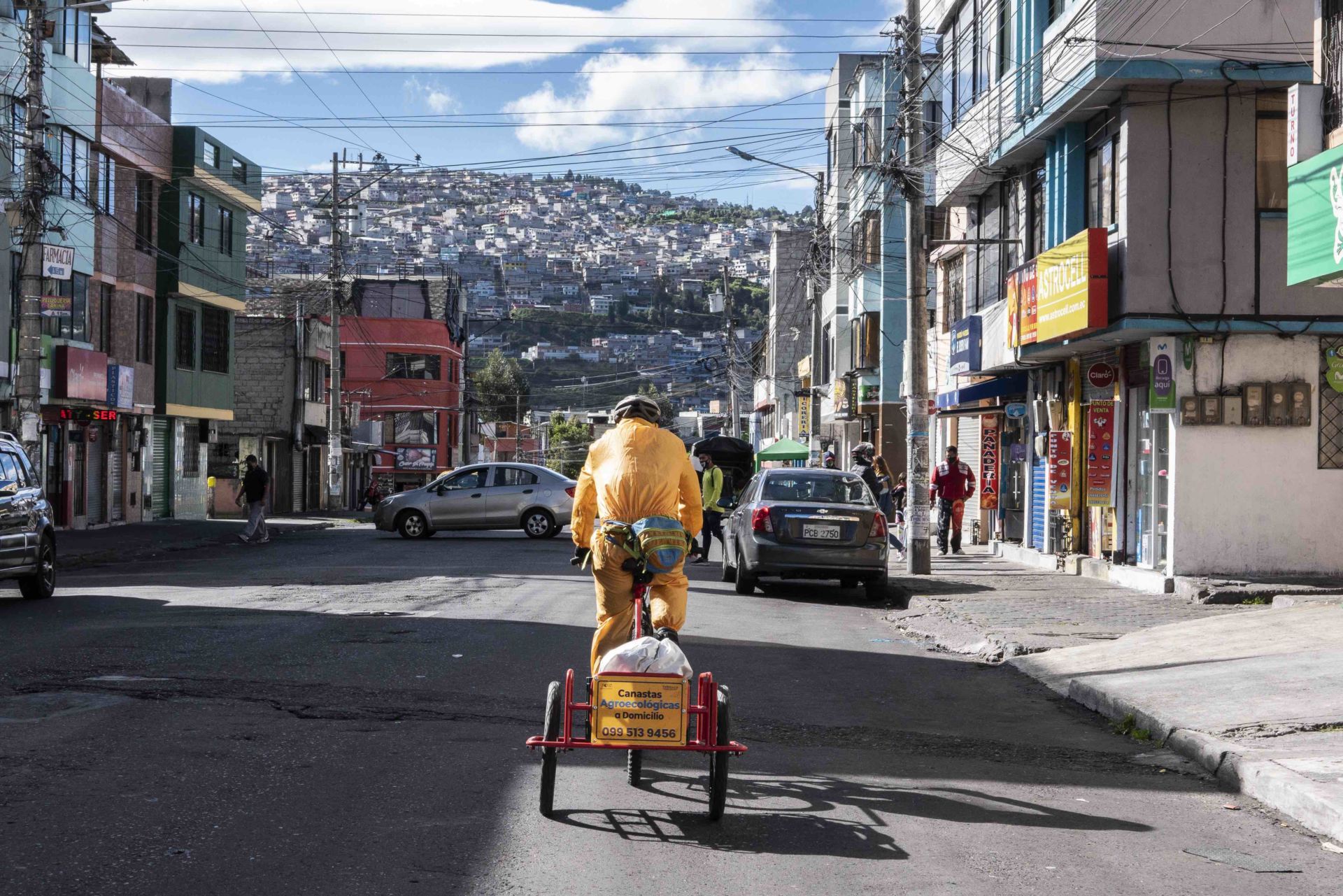
“Let’s remember that rural families in Ecuador often live in poverty, and access to water, alcohol and soap is not easy for them,” said Rodriguez. She and her team contacted the World Health Organization to work on a community health plan for the program. Farmers also received additional training and improved guidelines on biosafety and food-handling protocols. Created in collaboration with Simón Bolívar Andean University, Ecuador’s Andina EcoSaludable program, these guidelines outline how to safely handle food during harvest and post-harvest, and package it amid pandemic concerns.
“We have always treated food carefully, but now we are even more careful with the details,” said Rosa Mena, a member of the Pamba Mikuna agro-producers group whose own land is located on the outskirts of Quito, Ecuador.
These safely prepared food baskets have now reached more than 10,000 families in the cities of Quito, Cuenca, Santa Elena and Machala, and Heifer Ecuador supports a similar program on the Galapagos island of San Cristobal. The program generates almost $70,000 monthly, and the plan is to continue to expand.
Related Articles: How the Women of Rural Senegal Are Fighting Drought, Hunger and Inequity | Sacred Cow Documentary Makes the Case That Beef is Good for You, the Environment
In fact, demand for safe and nutritious food surpassed supply in the early stages of the program. In response, a $213,776 investment from the Heifer International Disaster Fund is leading to upgraded refrigeration at the collection centers and more personal protective equipment to improve safety standards for workers and customers. Additional Heifer funding for construction materials to upgrade the centers is being matched by an in-kind contribution of $530,000 from municipal governments, enabling producers to further scale the business.
“We’re thinking about this program as both a response to the crisis and also a long-term answer,” Rodriguez said. “We’re thinking about the new normal and creating a sustainable food system.”
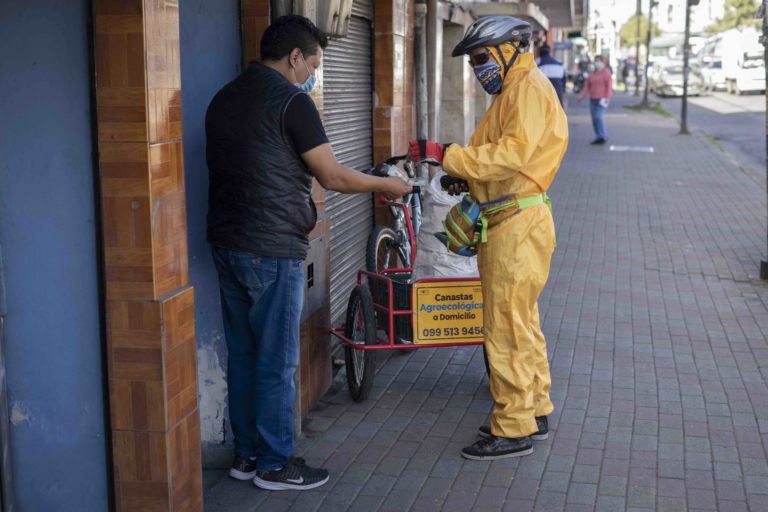
This is the first time many customers are giving more than a second thought to the people who grow their food, added Rodriguez. “This crisis showed us that food producers are first responders, just like doctors and nurses, because they guarantee people’s health by delivering nutritious and safe food,” she said.
“This crisis has meant that now small farmers and organic produce are valued,” said Margarita Haro of the El Marco Agricultural Cooperative, which is based in the parish of Píntag and supplies fresh food to some of Ecuador’s fast-growing urban areas. “When we deliver our products, people tell us we are just as important as doctors who are working nonstop in hospitals while we deliver their food.”
Editor’s Note: The opinions expressed here by Impakter.com columnists are their own, not those of Impakter.com. —In the Featured Photo: Susana Guasque works in a collection center in Quito to assemble food baskets that will be delivered to the north of the city. Featured Photo Credit: Isadora Romero/Heifer International.


